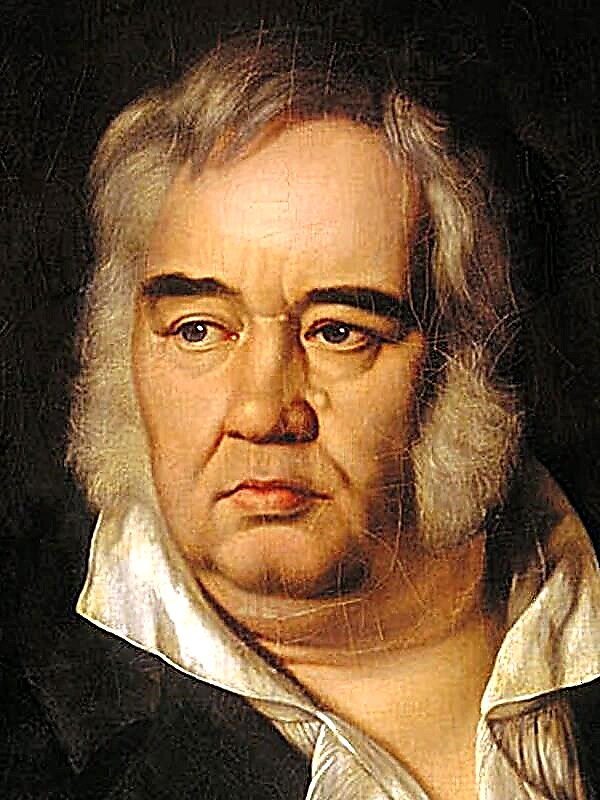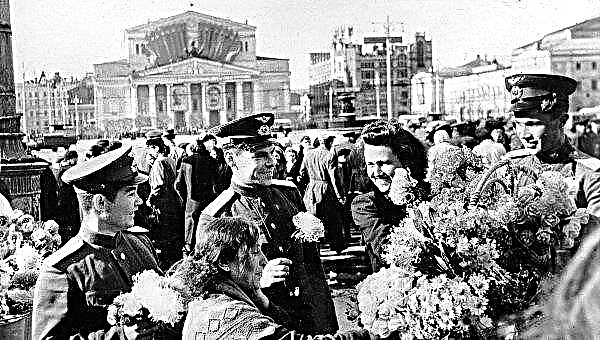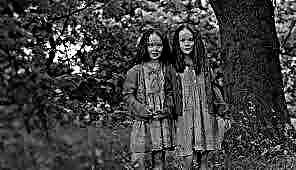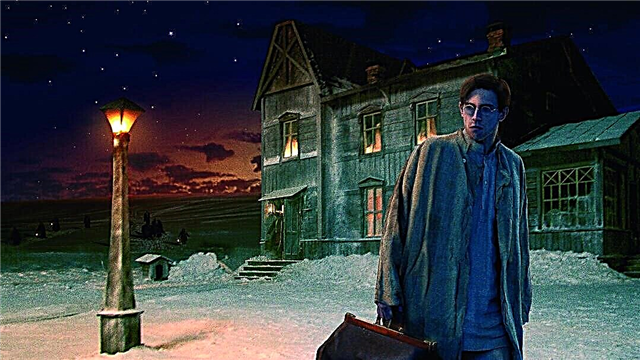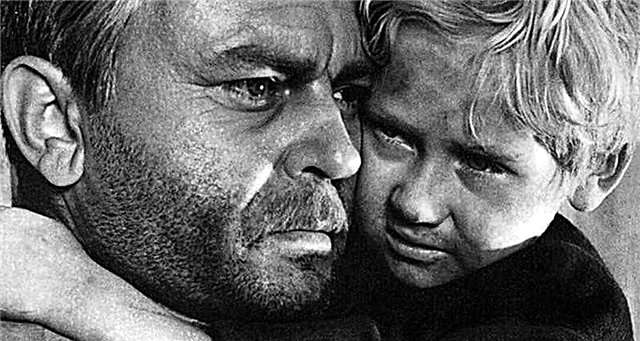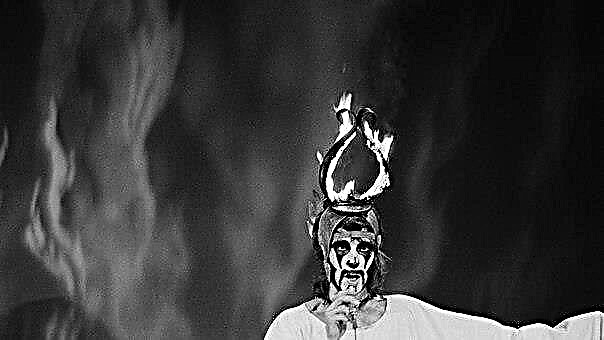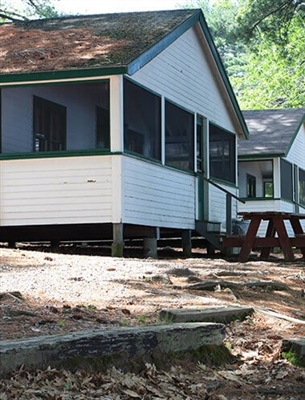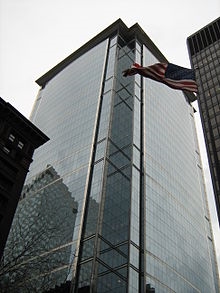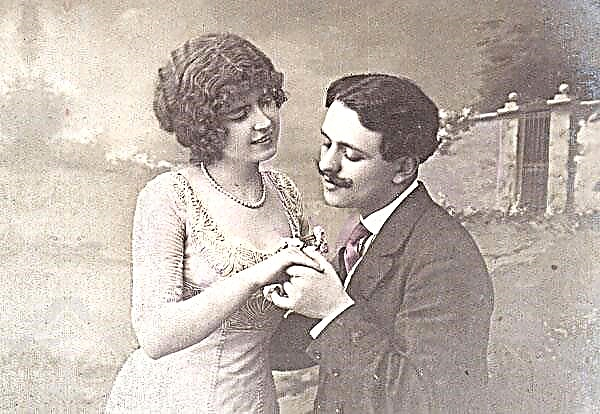The narrator, at the request of Mr. de P., goes to the Catalan town of Ille. He must examine all the ancient monuments in the area, which will be indicated by the local lover of antiquity, Mr. de Peyrorad. On the way, the narrator learns from his guide that a copper idol of a pagan goddess was dug up in the garden of Mr. de Peyrorad. Locals already nicknamed the statue “evil”: when they lifted it, it fell over and broke Jean Kolya’s leg.
De Peyrorada welcomes the guest. Their son Alphonse is silent, who came to him is interesting only as a Parisian, a capital man. Alphonse looks ridiculous, dressed in the latest fashion, he has the hands of a peasant in the sleeves of a dandy. He will soon marry a rich girl living next door in Puigarig. Mr. de Peyrorad begins to praise his "Venus Tour", meeting his wife's condemnation: "She herself created a good masterpiece! Break a man’s leg! ” De Peyrorad replies: “Who was not injured by Venus?” The narrator is about to sleep. From the window of his room he sees a statue standing in the garden. Two locals pass by and start scolding her. One of them takes a stone and launches into Venus, but immediately grabs his head: "She threw the stone back at me!"
In the morning, a Parisian with Mr. de Peyrorad set off to inspect Venus. The owner asks the narrator to help him with the translation of the inscriptions on the statue. It is impossible to imagine anything more perfect than the body of this Venus, but contempt and cruelty are read on its beautiful face. The inscription on the cap reads: “CAVE AMANTEM” (“Beware of the Loving”) The second inscription is carved on the forearm:
VENERI TURBUL ...
EUTYCHES MYRO
IMPERIO FECIT
Mr. de Peyrorad believes that Venus comes from the once Phoenician village of Bulternera (warped "Turbulnera") nearby and discusses the possible etymology of this word related to the god Baal. He offers a translation: "Miron devotes Venus of the Bulternerian, at her command, this statue made by him." Men notice white specks of stones on the chest and fingers of Venus. The guest tells what he saw last night. After breakfast, he remains in the stable with Alphonse, who is occupied only by the dowry of his bride Mademoiselle de Puigarig. He wants to give her a ring with diamonds in the shape of two woven hands and engraved “sempr’ab ti” (“forever with you”). “To wear a thousand two hundred francs on everyone’s finger is flattering!”
De Peyrorada and their guest dine with the bride. The Parisian finds that rude Alphonse is not worthy of the pretty Mademoiselle de Puigarig, so similar to the goddess of love. Wedding tomorrow, Friday is the day of Venus. Alphonse in the morning goes out to play ball with the Spaniards. The ring bothers him. Alphonse leaves the decoration on Venus’s finger and wins. The defeated Spaniard threatens him with retribution. Heroes leave for Puigarig, the groom recalls that he forgot the ring. But there is no one to send for him, and the young one receives the ring of the milliner, with whom Alfons had fun in Paris. The wedding for dinner returns to Ill. The bride and groom, who had disappeared somewhere for a moment before sitting at the table, was pale and strangely serious. The bride’s garter is traditionally cut, Mr. de Peyrorad sings newly composed verses about two Venus before him: Roman and Catalan. After dinner, Alphonse in horror tells the Parisian: Venus bent her finger, the ring can not be returned. He asks the guest to look, but he does not want to go in the rain and rises to himself. Footsteps are heard in the corridor - the bride is led to the wedding bed. The narrator pities the poor girl again and tries to sleep.
An early morning cry rises in the house. Alphonse lies dead in a broken bed, and his wife beats in convulsions on the couch. The young face expresses terrible suffering. The bruises on his body seemed to be squeezed by a hoop. Nearby lies his diamond ring. The royal prosecutor manages to interrogate the widow of Alphonse. At night, she lay under the covers, as someone else's and cold sat on the bed. Alfons went into the bedroom with the words: "Hello, little wife," and his cry sounded right there. De Puigarig nevertheless turned her head and saw Venus strangling in the arms of her husband. The Spaniard, who played ball with Alfonso, was not involved, and the servant, the last to see the newlywed alive, claims that there was no ring on him.
The Parisian leaves Illya. Mr. de Peyrorad escorts him in tears. He will die a few months after his son. Venus of Ilya, on the orders of Madame de Peyrorad, is melted down to the church bell, but even in this form it continues to harm people: since the new bell tolls in Illa, the vineyards have already been hit twice by frost.

